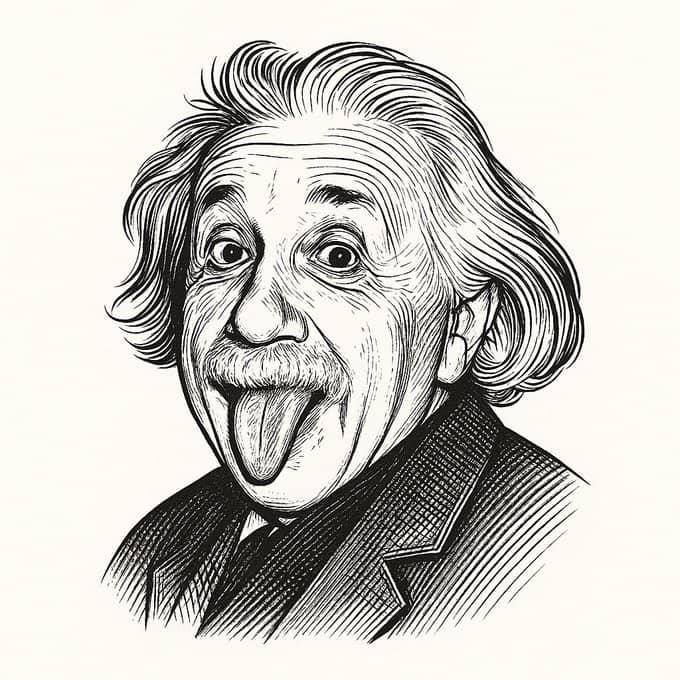He Wasn’t Supposed to Matter — Then He Rewrote the Laws of Reality.

The story of Albert Einstein is more than science. It’s a reminder that true genius doesn’t need permission.
He didn’t speak in full sentences until he was almost four years old.
When he finally did, his parents were relieved — but his teachers were not.
They labeled him slow, inattentive, and a poor communicator. One schoolmaster even told his father:
“It doesn’t matter what he does, he will never amount to anything.”
That boy’s name? Albert Einstein.
In school, Albert struggled with the rigidness of traditional learning. He found rote memorization meaningless. He hated being told what to think instead of being asked why. He challenged authority, questioned his instructors, and thought deeply about the things most people ignored.
He was called lazy, difficult — even mentally handicapped.
Most people gave up on Albert before he ever got started.
But Albert Einstein wasn’t slow. He was thinking — just not the way the world expected him to.
As a child, he was mesmerized by a simple compass. The invisible force behind its movement lit a fire in him. He couldn’t explain it yet, but he felt it:
There were laws behind the universe. And he was born to understand them.
Still, his journey was far from easy.
At 15, he dropped out of high school and moved to Switzerland. Later, he applied to the Swiss Federal Polytechnic in Zurich — and failed the entrance exam.
He aced the math and physics sections but stumbled in languages, botany, and politics.
But he didn’t quit.
He studied for a year, reapplied, and got in. Even then, he struggled to fit in. He skipped classes, challenged his professors, and made few allies. After graduation, not a single university would hire him — not even as an assistant.
One professor even sabotaged his job applications, calling him lazy and insubordinate.
So Einstein took a job at a patent office in Bern, reviewing inventions by day, scribbling theories on scraps of paper by night.
And then came 1905 — his Annus Mirabilis, or miracle year.
In just 12 months, Albert Einstein published four scientific papers that changed everything:
Photoelectric Effect — laying the groundwork for quantum theory.
Brownian Motion — proving the existence of atoms and molecules.
Special Relativity — redefining time and space.
E = mc² — the most famous equation in history.
No laboratory. No research team. No elite university.
refused to stop questioning.
Einstein didn’t just become a scientist — he became a symbol.
In 1921, he won the Nobel Prize in Physics.
By the 1930s, he was world-renowned — not just for his discoveries, but for his humanity.
He spoke out against fascism, racism, and the arms race. He used his platform not just to explain the cosmos — but to fight for a better world.
And that’s why his story endures.
Einstein’s genius wasn’t about IQ scores, perfect grades, or a straight path.
It was about curiosity. Conviction. And the courage to think differently.
He once said:
“Great spirits have always encountered violent opposition from mediocre minds.”
And then he proved it.
Here’s the truth:
You don’t need to be understood to be right.
You don’t need approval to be brilliant.
And you don’t need permission to change the world.
History doesn’t remember the ones who followed the script.
It remembers the ones who rewrote it.
So ask yourself:
What idea are you holding onto — that the world just isn’t ready for yet?









